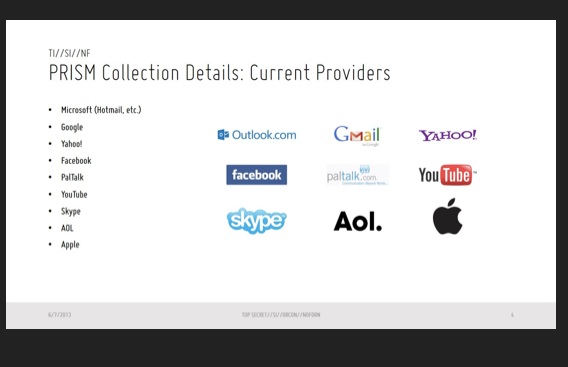My Observer Comment piece about the dilemma facing Google and the other Internet giants: do they co-operate with the National Security State? Or look after their users’ (and their own commercial) interests?
The revelations of the past week explain why Schmidt was so preoccupied with the power of the state – especially of the national security state, which is what our democracies are morphing into. The apparent contradictions between, on the one hand, Google’s vehement insistence that it has “not joined any programme that would give the US government – or any other government – direct access to our servers” and, on the other, the assertions to the contrary in the leaked National Security Agency slide-deck that demonstrate the extent to which Google (and the other internet companies) are caught between a rock and a very hard place.
The rock is that the national security state, as embodied in the National Security Agency, GCHQ and kindred agencies, shows no sign of withering away. Au contraire. In the end, companies such as Google, Microsoft, Facebook and Apple will be compelled to obey the state’s orders. If they don’t, their executives will find themselves sharing jail cells with the likes of Bradley Manning.
The hard place is corporate terror that their users will become alienated by the realisation that personal communications cannot be safely entrusted to internet companies based in the US. Crunch time has arrived for Google & co, in other words. I look forward to the second, revised, edition of Schmidt’s book.

